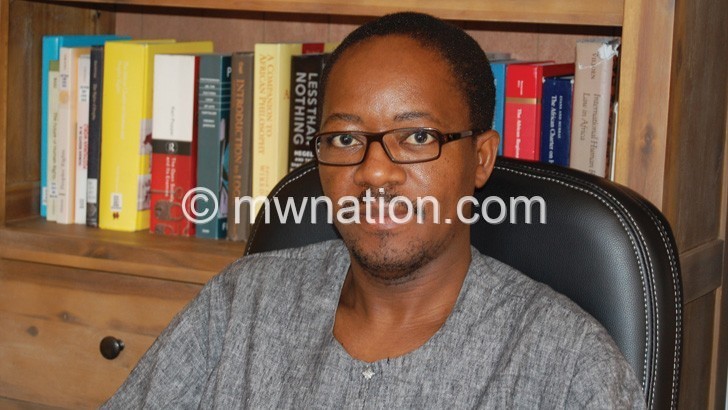‘Politics at centre of corruption
Today, December 9, is World Anti-Corruption Day, a day set aside by the United Nations (UN) to raise awareness about corruption and the role of the United Nations Convention Against Corruption which was adopted by the UN General Assembly on October 31 2003. In this interview, our News Analyst MERCY MALIKWA engaged Danwood Chirwa, a Malawian law scholar based in Cape Town, to assess the fight against corruption in the country.

As a law scholar what is your view of the fight against corruption in Malawi?
Despite the constant attention it receives, corruption in Malawi is increasing rather than decreasing; it happens in high and low offices, and in both private and public sectors. Corruption accounts for persistent situation of underdevelopment, poor infrastructure, economic stagnation, poor service delivery and deepening poverty.
Almost 19 years since the establishment of the Anti-Corruption Bureau (ACB), what is your assessment of its duties?
High hopes were placed on the bureau as the specialised law enforcement agency to lead the fight against corruption. But 19 years down the line, those hopes have been largely frustrated. Over its lifetime, the bureau has not been allowed to function independently. Neither has it benefitted from adequate funding. Sometimes, the bureau has been compromised by political appointments at the top while at other times it has undermined itself by internal incompetence.
Considering that over the years there has been a rapid increase of corruption as witnessed by the high levels of both grand and petty corruption, where are we getting it wrong?
At the centre of Malawian corruption is politics. Political parties and politics have become instruments for perpetrating all manner of financial crimes against the state. Corruption and plunder of public resources has become so institutionalised that it is no longer shocking to hear of a new major corruption scandal. The government of the day invariably establishes its own covert scheme of plunder and does all it can to interfere with the proper functioning of law enforcement agencies. Because such illicit schemes are sanctioned from the top and because the highest political office bearers rarely get prosecuted or do not prosecute each other except as a political threat, the culture of corruption and criminality will continue to fester.
Moving forward, what exactly needs to be done in order to stamp out corruption in the country?
Malawian corruption is so deeply embedded that it requires an entirely new ethical leadership that will prioritise probity and integrity, competence and equal opportunity. Unfortunately, there is no prospect of such leadership at the moment.
Are the governance systems available in the country enough to deal with corruption?
Malawian corruption takes place in spite, or because, of the existing governance systems. These systems serve rather than check the government of the day. n





